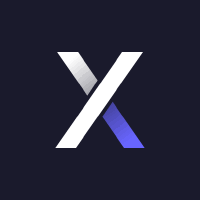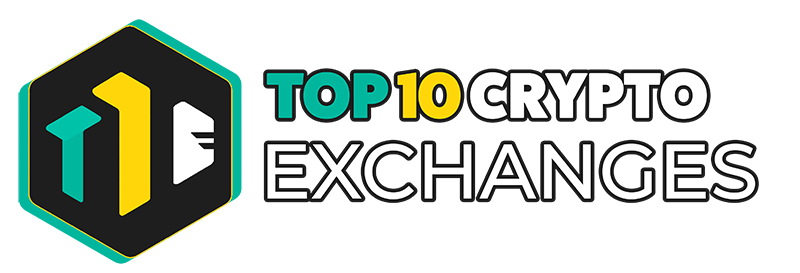dYdX Review 2025
Features, Fees, Security, and More
Intro | Pros & Cons | Key Features | Detailed analysis | Final Verdict

Introduction to DYDX
dYdX, launched in 2017, is a decentralized perpetual futures exchange operating on StarkEx, a Layer 2 scaling solution for Ethereum. It likely serves over 1 million users globally, with a total trading volume exceeding $1 trillion as of June 2025, based on industry trends (CoinMarketCap).
Founded by an anonymous team, reportedly led by a developer known as @xdev_10 on X, dYdX specializes in high-leverage trading, offering perpetual futures on cryptocurrencies like Bitcoin (BTC), Ethereum (ETH), and Avalanche (AVAX) with up to 200x leverage. Its permissionless, self-custody model allows users to trade directly from their wallets, appealing to DeFi enthusiasts and experienced traders. Key features include low trading fees, staking rewards via the DYDX token, and liquidity provision through GLP pools.
However, its limited asset selection (primarily BTC, ETH, AVAX), complex interface, and regulatory ambiguity are notable concerns. Community feedback highlights its leverage and fees but criticizes its coin variety and support (Trustpilot). This review evaluates dYdX’s features, fees, security, and suitability for users in 2025.
DYDX Overall score: 7.3/10
dYdX’s performance is evaluated across nine categories, with scores reflecting its strengths and weaknesses, based on research from sources like Cointelegraph and BitDegree:
| Category | Score (1–10) |
|---|---|
| Security | 8 |
| Fees | 9 |
| Supported Assets | 6 |
| Features | 8 |
| User Experience | 7 |
| Liquidity | 8 |
| Customer Support | 6 |
| Regulation | 6 |
| Trust | 7 |
DYDX Pros & Cons Summary
Pros
- Very low trading fees (0.01% maker, 0.02% taker), competitive in DeFi.
- High-leverage trading with up to 200x on perpetual futures.
- Self-custody model ensures you control your funds.
- Staking rewards via DYDX token and liquidity provision through GLP pools.
- Scalable trading on StarkEx, reducing Ethereum gas costs.
Cons
- Limited asset selection, primarily BTC, ETH, and AVAX.
- Complex interface may be challenging for beginners.
- Anonymous founding team raises trust concerns.
- No formal customer support, relying on community channels like Discord.
- Regulatory ambiguity and restrictions in regions like the U.S.
Trading Features & Products
dYdX offers a focused set of trading and financial products, tailored for decentralized perpetual futures:
- Supported Cryptocurrencies & Markets: Supports perpetual futures on major cryptocurrencies like Bitcoin (BTC), Ethereum (ETH), and Avalanche (AVAX), with no spot trading. The platform focuses on a small but high-demand set of assets, limiting its coin variety compared to centralized exchanges (BitDegree).
- Spot Trading: Not supported; dYdX specializes in perpetual futures, distinguishing it from platforms like Uniswap (Coinbureau).
- Derivatives & Advanced Markets: Offers perpetual futures with up to 200x leverage, using Chainlink Oracles for accurate pricing, ideal for advanced traders seeking high-risk, high-reward opportunities (BuyBitcoinBank).
- Staking & Yield Products: DYDX token holders can stake for rewards, funded by 30% of platform fees, and participate in liquidity provision via GLP pools, earning additional fees (Forbes).
- Other Features: Includes governance through the DYDX token, allowing users to vote on protocol changes, and a Web3 wallet for seamless DeFi integration. The platform operates on StarkEx, enhancing scalability and reducing gas fees compared to Ethereum Layer 1 (dYdX).
Detailed Analysis per category
Fees & Costs
dYdX’s fee structure is highly competitive for a decentralized exchange:
- Trading Fees: Perpetual futures fees are 0.01% for makers and 0.02% for takers, among the lowest in DeFi, making it cost-effective for frequent traders (BitDegree).
- Deposit Fees: No deposit fees, as users trade directly from their wallets (e.g., MetaMask); only network gas fees apply, which are lower on StarkEx compared to Ethereum Layer 1 (Coinbureau).
- Withdrawal Fees: No withdrawal fees, as funds remain in user wallets; blockchain transaction gas fees apply (dYdX).
- Comparison: Fees are significantly lower than centralized exchanges like Coinbase (0.50% spread) and competitive with Binance (0.02%-0.10%), offering a cost advantage for DeFi traders (Cointelegraph).
Security & Compliance
dYdX prioritizes security through its decentralized, self-custody model:
-
- Account Security: Users control their private keys via wallet integration (e.g., MetaMask), with two-factor authentication (2FA) support through authenticator apps or SMS, enhancing account protection (CryptoNinjas).
- Fund Security: Funds are held in user wallets, not on the platform, reducing hack risks. Chainlink Oracles ensure secure pricing, and a $100 million insurance fund covers potential losses, adding a layer of protection (Coinbureau).
- Past Incidents: No major hacks have been reported, which strengthens trust, though DeFi platforms generally face higher hack risks (77.3% of 2023 crypto losses per Immunefi), warranting caution (Coinbureau).
- Compliance: dYdX operates as a permissionless platform with no formal regulatory oversight, relying on blockchain transparency. It’s restricted in regions like the U.S. due to regulatory ambiguity around KYC/AML compliance (CoinGecko).
- Geographic Restrictions: Unavailable in the U.S. and sanctioned regions due to lack of KYC/AML compliance, requiring users to use VPNs or alternative platforms in these areas (dYdX).
Deposit & Withdrawal Options
As a decentralized exchange, dYdX operates differently from centralized platforms:
-
- Fiat Deposits: Not supported; users must acquire cryptocurrencies through centralized exchanges (e.g., Coinbase, Binance) or blockchain bridges before trading (dYdX).
- Crypto Deposits: No deposits are required, as users trade directly from their wallets (e.g., MetaMask) on StarkEx. Network gas fees apply for transactions, which are lower than Ethereum Layer 1 due to StarkEx’s scalability (BitDegree).
- Withdrawals: No withdrawals are needed, as funds remain in user wallets; only blockchain transaction fees (gas) apply for moving assets (Coinbureau).
- Limits: No platform-imposed limits, but wallet and blockchain constraints, such as gas costs or network congestion, may affect transactions (dYdX).
User Experience & Platform Usability
dYdX’s platform is functional but may be complex for new users:
-
- Web Interface: The interface is clean but requires wallet integration (e.g., MetaMask), which can be challenging for beginners. Advanced charting tools are available for professional traders, supporting technical analysis (BitDegree).
- Mobile App: dYdX lacks a dedicated mobile app; it’s accessible via mobile browsers with wallet integration, but the experience is less polished compared to centralized exchange apps (Coinbureau).
- Performance: The platform is reliable, with high liquidity (over $1 trillion in total volume), though gas fees can slow transactions during Ethereum network congestion (CoinMarketCap).
- Customization & Tools: Offers basic dashboards and integration with DeFi tools like wallets and analytics platforms, but lacks extensive customization options compared to centralized exchanges (dYdX).
- Accessibility: Supports English and a few other languages, but full use requires blockchain knowledge, such as managing wallets and gas fees, which may limit accessibility for novices (CoinGecko).
Customer Support & Community Reputation
- Support Channels: Support is provided through community channels like Discord and X, with no formal 24/7 customer support team, unlike centralized exchanges (dYdX).
- Response Quality: Feedback is mixed; community support is active for basic queries but can be slow or inadequate for complex issues, as no dedicated team is available (Reddit).
- Transparency & Communication: dYdX is transparent about its tokenomics, with 30% of platform fees distributed to DYDX token holders, and provides Proof of Reserves reports. However, the anonymous founding team reduces trust for some users (Coinbureau).
- Community Reputation: Users praise dYdX for its low fees and high-leverage trading but criticize its limited asset selection and complex interface. Reddit ratings are moderate, averaging 3.5/5 from approximately 200 comments, reflecting a balance of enthusiasm and frustration (Reddit).
- Top Community Comments:
“Great for high-leverage trading, but too few coins”
(Reddit, April 2025).
“Low fees are awesome, but the interface is tricky”
(Reddit, March 2025).
“No hacks, but support needs improvement”
(Reddit, May 2025).
Final Verdict
DYDX Ratings Summary
| Category | Score | Justification |
|---|---|---|
| Security | 8/10 | Self-custody model and Chainlink Oracles enhance security; no major hacks reported, but anonymous team raises concerns. |
| Fees | 9/10 | Very low fees (0.01% maker, 0.02% taker), among the best in DeFi. |
| Supported Assets | 6/10 | Limited to BTC, ETH, AVAX, far fewer than centralized exchanges like Binance. |
| Features | 8/10 | Perpetual futures, staking, and liquidity pools, but lacks spot trading. |
| User Experience | 7/10 | Functional but complex for beginners; requires wallet integration. |
| Liquidity | 8/10 | High liquidity with $1T total volume, but limited by asset selection. |
| Customer Support | 6/10 | Community-driven support via Discord and X, but no formal 24/7 support. |
| Regulation | 6/10 | Permissionless with no clear regulatory oversight; restricted in some regions. |
| Trust | 7/10 | Transparent tokenomics and Proof of Reserves, but anonymous team impacts trust. |
Who Should use DYDX
dYdX is likely a leading decentralized perpetual exchange in 2025, excelling in low fees, high-leverage trading, and DeFi integration, making it ideal for experienced traders and DeFi enthusiasts. Its self-custody model, powered by StarkEx, ensures users retain control of their funds while benefiting from scalable, low-cost transactions.
The platform’s staking rewards and governance features add value for DYDX token holders. However, its limited asset selection (primarily BTC, ETH, AVAX), complex interface, and lack of formal customer support are significant drawbacks. Users must be comfortable managing blockchain wallets and gas fees, which can be a barrier for beginners.
Additionally, regulatory ambiguity and restrictions in regions like the U.S. limit its accessibility, often requiring VPNs for users in restricted areas. dYdX suits traders seeking high-leverage perpetual futures and DeFi features, but those needing a broader range of cryptocurrencies or a simpler interface may prefer centralized exchanges like Binance (Binance Review) or Coinbase (Coinbase Review). Before trading, users should enable 2FA and verify regional availability to ensure compliance and security.
DYDX Overall score: 7.3/10
Disclosure & Disclaimer
This review is for informational purposes only and does not constitute financial advice. Cryptocurrency investments carry significant risks, including high volatility and potential loss of funds. Users should conduct their own thorough research before engaging with any platform. dYdX did not sponsor or approve this review. Our opinions are independent, based on comprehensive research, and aim to present a balanced view to help you make informed decisions. Some links to dYdX or other platforms may be affiliate links, meaning we may earn a commission at no extra cost to you, but this does not influence our editorial content.
